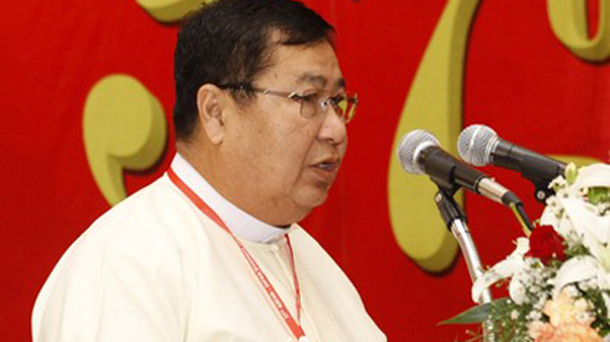Zay Kabar, a Burmese company that has been accused of illegally confiscating more than 800 acres of land from farmers in Shwenanthar, a village in Rangoon’s Mingaladon Township, has continued clearing the land despite being told to stop by local authorities.
After embankments on the farmland were leveled last week, around 50 farmers began rebuilding them in preparation for the start of the planting season, prompting officials from the Housing Department and the local administrative office to order both sides to desist.
However, the company has ignored the order and resumed its work on the land, according to the farmers.
“Yesterday, the officials said not to do anything, but the company’s staff is destroying our land again,” Kyaw Sein, a farmer who said he lost 50 acres of land, told The Irrawaddy on Friday.
“We reported it to the administrative office this morning. We did as we were told, but they [the company] didn’t,” he added.
The 815 acres of land were reportedly confiscated in 2010 by Zay Kabar, a company owned by Khin Shwe, an MP from the ruling Union Solidarity and Development Party.
The company offered 300,000 kyat (US $363) per acre as a “sympathy payment,” but the farmers have continued to demand more compensation, saying the land is worth far more than Zay Kabar paid for it.
“They started destroying the embankments about six days ago,” said Tin Sein, a farmer who said she has only five acres left after 13 were taken from her.
The farmers said they are also upset because some of the confiscated land includes property that they had donated to a local monastery.
“Some of the land was not on the cultivation list because it was for the monastery,” said Tin Sein, who added that she also donated some of her land and crops to support monks and orphans.
“They even destroyed these. I asked the company’s workers why they are doing this, and they just told me they were following orders from their manager, Myint Zaw of Zay Kabar,” she added.
Earlier this year, the manager of Zay Kabar also told farmers living on the confiscated land that they had to move, leaving many with nowhere to live, said Tin Sein.
















